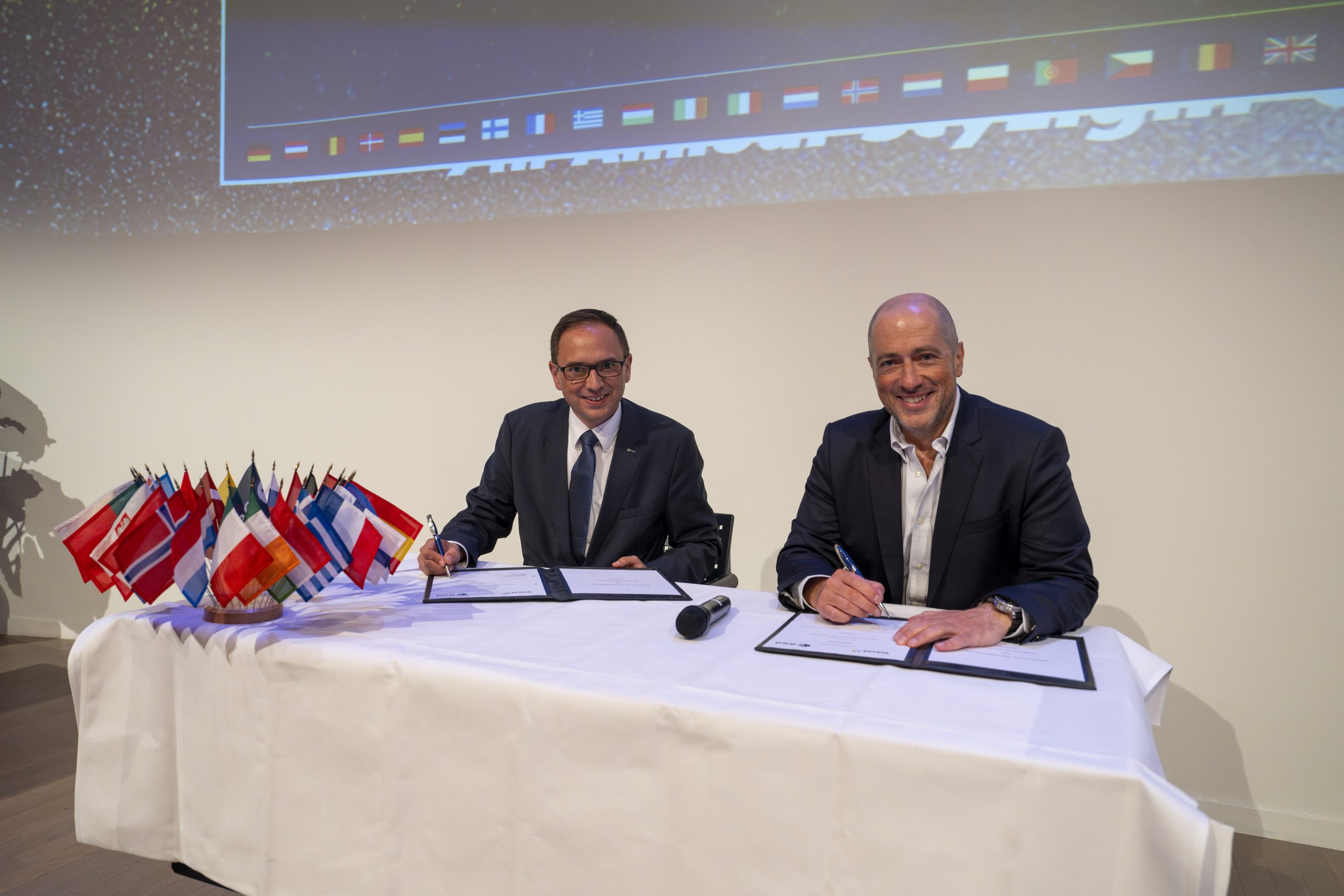LATEST NEWS
December 21, 2025 • 17:53
December 16, 2025 • 09:42
December 16, 2025 • 09:26
December 10, 2025 • 14:28
December 3, 2025 • 11:07
EVENTS
January 25, 2022
27 Jun 2024

The Advanced Innovative Data Access Network (AIDAN) project celebrated further success as ESA Member States Delegates, industry partners and ESA came together for its evolutionary project, AIDAN Next.
Signed at ESA’s recent ScyLight Conference in Eindhoven, the Netherlands, AIDAN Next builds on the AIDAN Partnership Project, combining the expertise of an industrial and research organizations consortium of 14 partners, led by Viasat and six participating Member States: The Netherlands, Switzerland, Italy, Ireland, the United Kingdom and Canada. AIDAN has already demonstrated and validated solutions to harness the full potential of high-capacity satellite systems.
The project is initiated under ESA’s Advanced Research in Telecommunications Systems (ARTES) Partnership Projects programme, with the goal to further develop the Viasat Optical Feeder Link system, which initially began through AIDAN.
The project has been enabling industry partners to lower the barrier in the adoption of satellite communication-based services, enhancing performance and reducing costs compared with other technological solutions, particularly for satellite communication fixed and mobile broadband markets.
AIDAN Next aims to develop this through further innovative developments of optical communication technologies, network automation technologies and responsible adoption of artificial intelligence. This strengthens the position of European and Canadian industry as ground and space segment suppliers in a growing and globally competitive market.
AIDAN Next includes the development of lightweight and low-cost optical space intersatellite link terminals, enhancing the competitiveness of the industrial consortium.
With the increasing demand for ubiquitous connectivity, the project will also develop digital beam-forming technologies that will support user terminals in connecting to multiple networks. This will allow users to merge the geostationary orbit capacity with non-geostationary orbit and terrestrial systems. This critical technological development will meet the continuing rise and need for more resilient and far-reaching connectivity that is challenging when using traditional terrestrial networks.
“ESA is proud to take the AIDAN partnership project to the next level, alongside Viasat and industry partners and participating Member States,” said Massimiliano Simeoni, ESA’s AIDAN Project Implementation Manager. “It provides a showcase of how the European and Canadian space ecosystem can come together to develop globally competitive and technologically leading systems and products to have a commercial and social impact.”
Craig Miller, President, Global Space Networks, Viasat, said: “This cutting-edge innovation is about developing new technology to deliver more bandwidth, with less complexity – and more efficiency. Doing so will help us continue to meet growing global communications demand and put our customers’ needs first, while sharing expertise with ESA and our project partners.
Laurent Jaffart, Director of ESA’s Connectivity and Secure Communications, said: “The AIDAN Next project demonstrates the ambition of ESA, Viasat, and our industrial partners in offering seamless commercial telecommunications connectivity services on a global scale, based on innovative technologies. ESA is proud to bring together the expertise and skills of the project’s industrial consortium and six participating Member States, with the aim to strengthen the position of European and Canadian industry as ground and space segment suppliers in a growing and globally competitive market.”
ESA’s Partnership Projects programme works with industry across Europe and Canada to drive our space ecosystem, de-risking technological developments and encouraging bold innovation to benefit industry, ESA Member States and citizens.